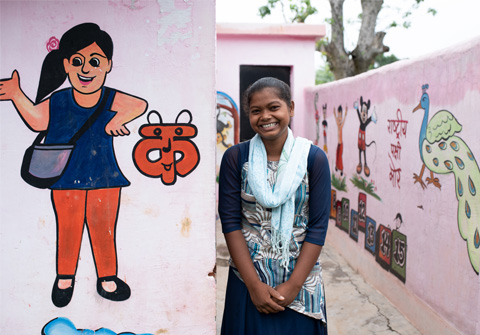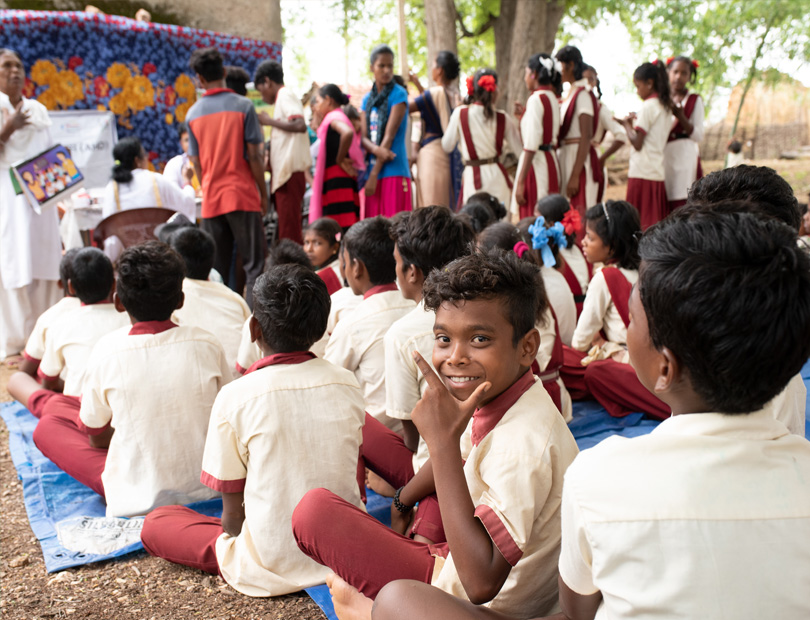

| Project inception year : | 2018 |
| Project supported by : | Azim Premji Philanthropic Initiative |
| Project area : | Gumla, Lohardaga and West Singhbum (Jharkhand) |
| Project reach : |
500,000 girls and boys of 10-19 years |
| Schools : |
1850 schools and 4500 Anganwadi Centers |
| Trainers : |
6000 nodal teachers, 900 PRI members, 4500 Asha workers, 900 Auxiliary Nurse Midwife and over 1100 School Management Committees. |
| Brochure : | Download |
Goal :
Project Manjari enables adolescent girls to complete secondary education, delay age of marriage, delay age of first pregnancy and increase agency
Need :
Adolescents in India account for 21% of its population out of which 120 million are adolescent girls (ORGI, 2011). Adolescent girls in India live in harsh conditions, where education and health are strongly influenced by social variables. This is in a context of patriarchy where girls and women are neglected, and are more vulnerable to illiteracy, hunger as well as diseases that afflict the population in general.
The eastern state of Jharkhand has close to 6.7 million adolescents (10-19) comprising about one fourth of the population. It is one of the first states to have a Youth Policy (2007). It is the only state offering adolescence education to its school going adolescents by integrating the “Udaan” programme into government school system. In spite of these pioneering systemic efforts, due to dearth of opportunities young people, especially adolescent girls are unable to avail their basic rights and realise their potential. A large number of adolescents in the state are outside the formal schooling process.
Under the Manjari initiative, technical expertise will be provided to ensure effective implementation of government policies and programs. It involves trainings for service providers, front line workers and peer educators to ensure quality implementation. Along with selection of Peer educators from the communities, providing trainings, supporting transactions of sessions, providing training kits and refresher trainings.
Forming and strengthening School Management Committees, implementing school development plans, orienting & engaging members of Panchayati Raj Institution on adolescent rights, laws, entitlements and schemes.
Establishing a robust system for assessing activities, ensuring effective implementation and producing evidence. Conducting a panel study and documenting processes, case studies, changes observed, undertaking data collation, assessment & review.
Manjari also brings together Department of Women and Child, Health as well as Education to review activities, participate in the decision making process and suggest changes to better respond to adolescent needs.
- By the end of 2023, Manjari aims to reach 400,000 adolescent girls and 100,000 adolescent boys of 10-19 years.
- The project builds and assists the eco-system to support adolescent girls for improved outcomes across agency, health, education, and employability, by leveraging available scalable platforms.



